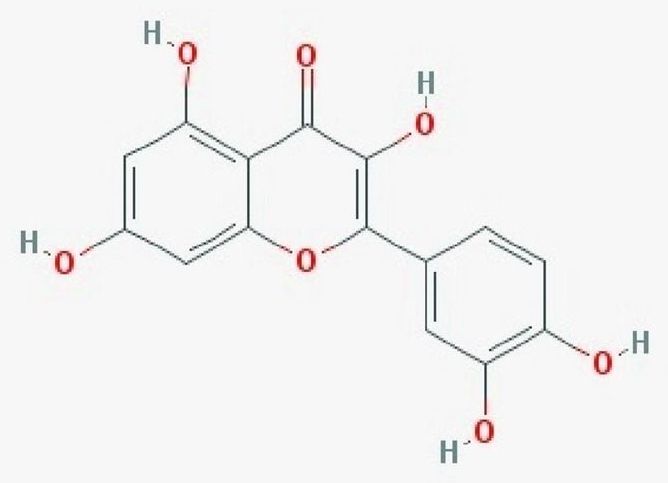Biomedical application of quercetin (QT) as an effective flavonoid has limitations due to its low bioavailability. Superparamagnetic iron oxide nanoparticle (SPION) is a novel drug delivery system that enhances the bioavailability of quercetin. The effect of short time usage of quercetin on learning and memory function and its signaling pathways in the healthy rat is not well understood. The aim of this study was to investigate the effect of free quercetin and in conjugation with SPION on learning and memory in healthy rats and to find quercetin target proteins involved in learning and memory using Morris water maze (MWM) and computational methods respectively. Results of MWM show an improvement in learning and memory of rats treated with either quercetin or QT-SPION. Better learning and memory functions using QT-SPION reveal increased bioavailability of quercetin. Comparative molecular docking studies show the better binding affinity of quercetin to RSK2, MSK1, CytC, Cdc42, Apaf1, FADD, CRK proteins. Quercetin in comparison to specific inhibitors of each protein also demonstrates a better QT binding affinity. This suggests that quercetin binds to proteins leading to prevent neural cell apoptosis and improves learning and memory. Therefore, SPIONs could increase the bioavailability of quercetin and by this way improve learning and memory.

Quercetin conjugated with superparamagnetic iron oxide nanoparticles improves learning and memory better than free quercetin via interacting with proteins involved in LTP
Read more